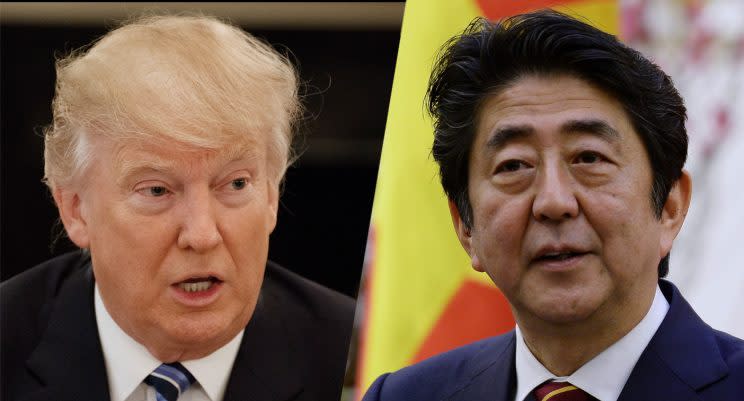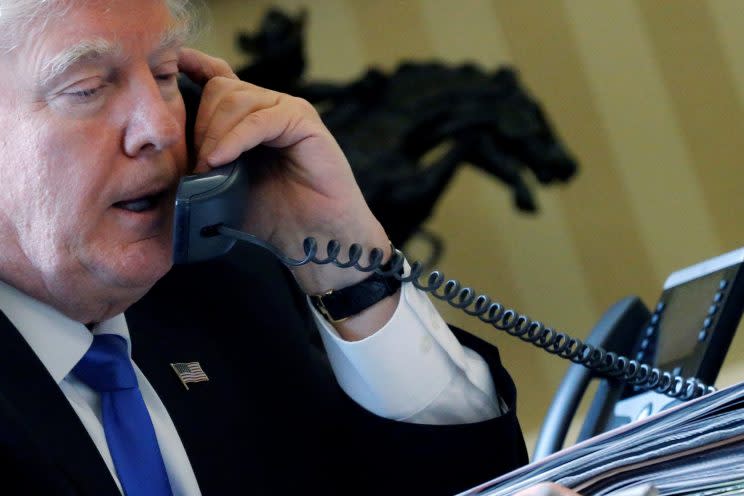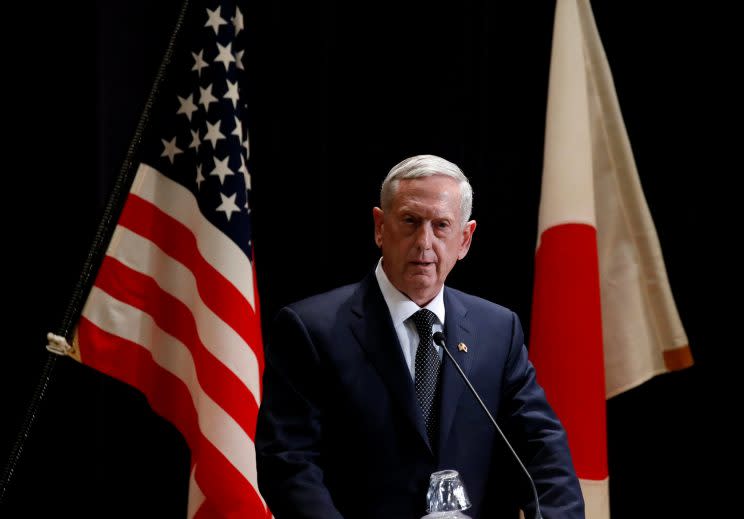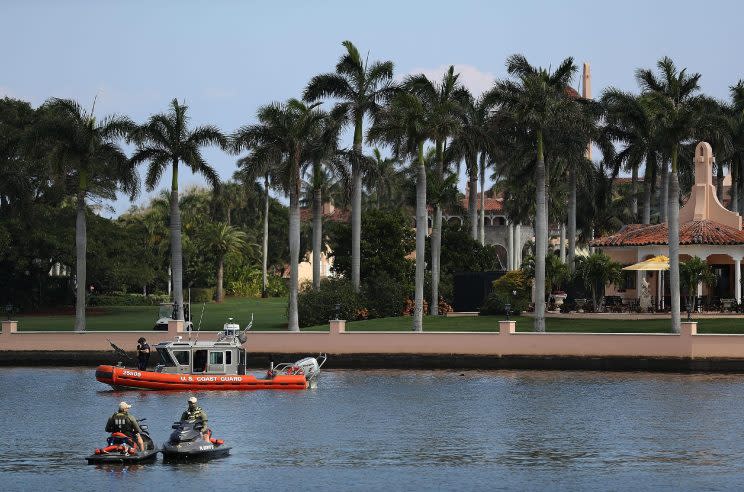Trump hosts Japan’s Abe for talks and golf at Mar-a-Lago

The threat from North Korea, the future of trade, China’s territorial ambitions and “a fair bit of golf” — there’s a lot on the agenda as President Trump hosts Japanese Prime Minister Shinzo Abe at the White House on Friday, followed by a weekend at his Mar-a-Lago home in Florida.
A decade after then-President George W. Bush took then-Prime Minister Junichiro Koizumi from Washington to Memphis for a tour of Elvis Presley’s Graceland estate, Trump will also blend the formal trappings of the presidential mansion with those of a more casual setting.
“This is a testament to the importance the United States places on the bilateral relationship and the strength of our alliance and the deep economic ties between the United States and Japan,” White House press secretary Sean Spicer said this week.
At Mar-a-Lago, a senior administration official told reporters in a telephone briefing, “I imagine that there will be a fair bit of golf involved as well as more time together, meeting and just relaxing, really.”
It’ll be Trump’s second summit since taking office, and part of a diplomatic flurry of activity that began with British Prime Minister Theresa May’s Jan. 27 visit and will continue with Canadian Prime Minister Justin Trudeau’s stop in D.C. on Monday, followed by Wednesday talks with Israeli Prime Minister Benjamin Netanyahu.
Trump has also been working the phones virtually every day, talking to Russian President Vladimir Putin, French President François Hollande, and the leaders of Afghanistan, Australia, Qatar, Japan, Korea, Kuwait and Iraq, among others.

There has been one notable omission in Trump’s diplomatic schedule: No telephone call with President Xi Jinping of China, a country the new resident of 1600 Pennsylvania Avenue frequently antagonized on the campaign trail.
White House officials acknowledge the way this gap may be perceived overseas, but some have played down talk of a snub, much less a rift. Trump sent Xi a letter on Wednesday in response to a congratulatory note last month from the Chinese leader.
Trump told Xi in his letter that “he believes that having a constructive relationship with China would be something that would serve the fundamental interests of both of our countries and really of the region and the world more widely,” the senior administration official said in the phone briefing. Trump also said that “he does look forward to discussing matters of mutual cooperation as well as delving into some of the well-known differences in the relationship.” No date has been set publicly for a meeting or telephone call between the two leaders.
The summit with Abe takes place as Defense Secretary James Mattis wraps up his first overseas trip since being confirmed — a voyage that began with a stop in Japan.
Mattis’ tour “went a really long way toward reassuring our allies that we stand with them shoulder to shoulder, 100 percent,” the administration official told reporters on the telephone briefing, which was held on condition that he not be identified.

That phrasing — “reassuring” — implicitly acknowledged how Trump’s campaign-trail rhetoric about Asia had unnerved allies and experts. They fretted over his call for nations where U.S. troops are stationed to shoulder more of the cost, his suggestion that Japan and South Korea might consider developing nuclear weapons and his skepticism about NATO as a warning about other alliances.
In Japan, Mattis praised the “unshakable” alliance between Tokyo and Washington, vowed to confront China diplomatically over its construction of artificial islands in the South China Sea and declared that America’s immediate focus in the region is the threat posed by North Korea’s nuclear weapons and ballistic missile program.
Mattis said that Beijing has “shredded the trust” of its neighbors and must abide by a “rules-based” international system. This rhetoric will likely be heard again at the White House.
The retired general turned defense secretary also highlighted an issue of deep concern to Japan: China’s newly aggressive posture towards the Senkaku Islands, which the United States regards as an area “administered” by Japan and covered by a mutual defense treaty with Tokyo.
While Mattis did not touch on trade — not a subject that naturally falls to his Cabinet post — the issue is sure to take up the leaders’ attention at the White House. In one of his first acts as president, Trump formally declared the Trans-Pacific Partnership trade accord dead. While that came as no surprise, it has raised questions about whether American partners in Asia will now turn to China or whether the United States can now cobble together bipartisan trade agreements to counter Beijing’s vast and growing regional influence.

Trump aides, who describe Mar-a-Lago as “the winter White House,” suggest that this will not be the last time the brash entrepreneur chooses to host a foreign leader at the luxury club.
The president “believes in getting to know leaders that he knows he’s going to be spending a lot of time dealing with, and on relationships that are important to him, he believes he can get the measure of people through more informal settings, and so I imagine that he’ll make use of time outside of Washington, D.C., with leaders from time to time,” the senior administration official said in the telephone briefing.
Trump suggested as much in a recent interview with Westwood One Sports Radio: “We’re going to have a round of golf, which is a great thing. That’s the one thing about golf — you get to know somebody better on a golf course than you will over lunch.”
Another senior Trump aide, asked who would cover the costs of Abe’s trip, told reporters it would be a “personal gift” from the president to the prime minister. That arrangement reflects concerns about holding the meeting at Mar-a-Lago, which is owned by Trump. The establishment recently doubled its membership fee, and the summit will provide extensive free publicity.
Holding diplomatic discussions outside of Washington is common. Barack Obama held some summits at the Sunnylands estate in California, while Bush hosted foreign leaders at Camp David or at his ranch in tiny Crawford, Texas.
But Bush’s visit to Graceland with Koizumi may have been his most memorable. The prime minister, a well-known Elvis fan, briefly crooned two of the rock icon’s best-known songs, classic tunes with potential diplomatic overtones: “Love Me Tender” and some of the opening line of “Can’t Help Falling In Love” — “wise men say only fools rush in.”
Read more from Yahoo News:



